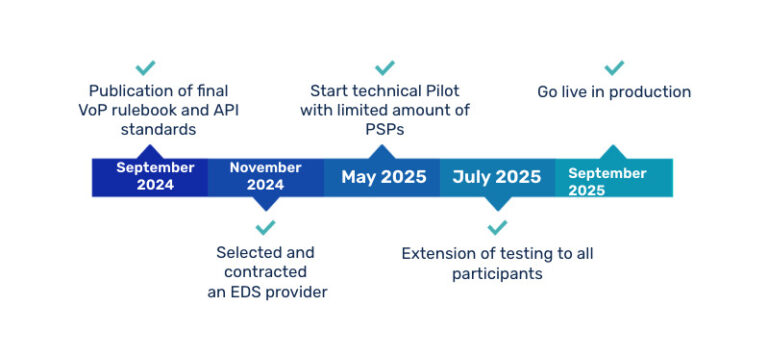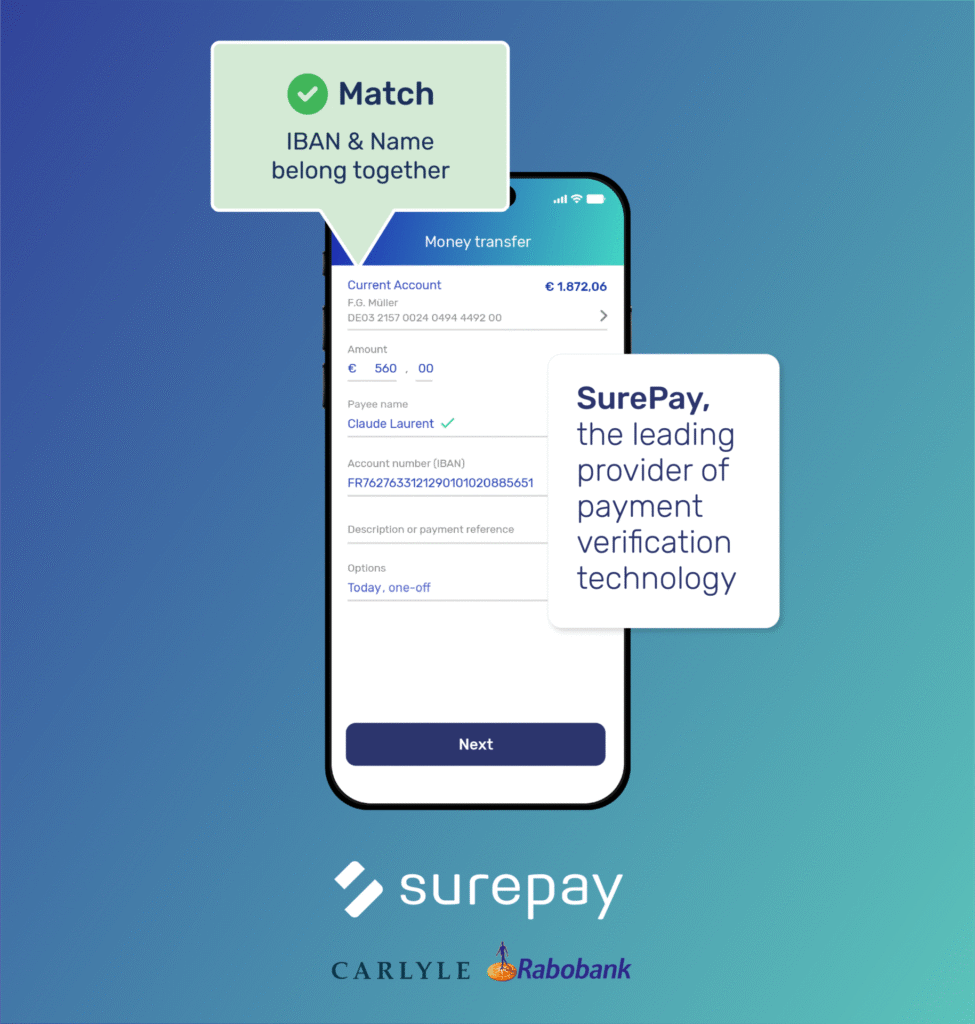The road to Verification Of Payee interoperability
With the Instant Payments Regulation being finalised almost two months ago other progress has been made in Europe. Specifically around the Verification Of Payee (VOP) requirements in the regulation and how PSPs will effectively work together, the following should be noted. The VOP Rulebook public consultation period has ended and the European Payments Council (EPC) will now start working on finalising the final Rulebook which will be accompanied by API specifications and implementation guidelines. The EPC also issued an RFP for a Directory Service Provider. In this article we will share what we know on how this will work as well as the relevant timelines.

The road to EU VOP interoperability
- On April 23rd the EPC issued an RFP for an Operational Scheme Manager for the EPC Directory Service. This directory known as the EPC Directory Service (EDS) will serve as a ‘phonebook’ for PSPs on the sending side to find out how to reach other PSPs for the following schemes:
- SEPA Request-to-Pay (SRTP)
- SEPA Payment Account Access (SPAA)
- Verification Of Payee (VOP)
On the receiving side the EDS will serve the purpose of allowing the receiving PSP to assess if the sending PSP is to be trusted and in both cases assure each other that they are adhering to the EPC Scheme.
Another initiative of the EPC is defining a Rulebook as well as a standard API for the VOP scheme. The Rulebook, standard API and EDS are essential components for achieving interoperability with all EU PSPs for VOP.
Looking at the timelines, based on current knowledge, the following are relevant for interoperability for VOP:

September 2025, will then be the moment that full reachability to all EU Participants becomes achievable in the VOP scheme. All these initiatives will contribute to the safe and trusted exchange of VOP messages between PSPs or entities like SurePay for acting on behalf of the PSPs in a standardised way. The technical and implementation guidelines expected to be published alongside the final Rulebook will complement this.
Emerging and existing solutions co-exist
It’s very likely that we will see various solutions emerge in Europe. An already noticeable trend is that countries, like Belgium, are organising themselves and introducing domestic solutions that are ready for interoperability with other EU countries and PSPs. It is expected that more countries will follow this approach. On the other hand, we will also see PSPs opting for standalone solutions to comply with the VOP requirements for all their European branches. A standard framework to connect all these parties together, like the EPC is creating with its Rulebook, standard API’s and the EPC Directory Service will be the basis for EU interoperability.
In Europe, several local infrastructures offering a Verification Of Payee solution already exist, such as SEPAmail in France, CBI in Italy, and SurePay in the Netherlands. Does this mean the end for these existing local schemes? In our view, the answer is simple: No. Local/domestic preferences require solutions tailored to those needs, often necessitating a broader or specific range of services. With the majority of transactions still being processed domestically, the primary value for payers will depend largely on how well a solution caters to the specific needs of that market.
Another relevant topic for consideration is whether these schemes will connect to each other bilaterally (i.e. bypassing the EDS) when a European interoperable solution governed by clear rules exists. The answer largely depends on the value these schemes can offer in their bilateral exchange of messages. If the community values additional services that cannot be offered through the EPC VOP scheme, it is very likely they will connect to each other to bring more value to a wider audience.
Conclusion
As mentioned, details and final specs are yet to become available, but from what we know the set-up looks a lot like the Confirmation of Payee scheme (Pay.UK) way of working. The directory ensures only allowed participants can exchange messages in a standardised way that complies with the EPC VOP rulebook as well as the IPR. So the EDS will become the cornerstone for interoperability while schemes can decide for bilateral connections to bring different value propositions, using VOP, to a wider audience and broader use cases outside of the scope of the IPR.
We will follow the developments very closely, and update whenever we feel it’s relevant or necessary.
In the meantime, if you have any questions or want to know what this means for your organisation, don’t hesitate to contact us.







